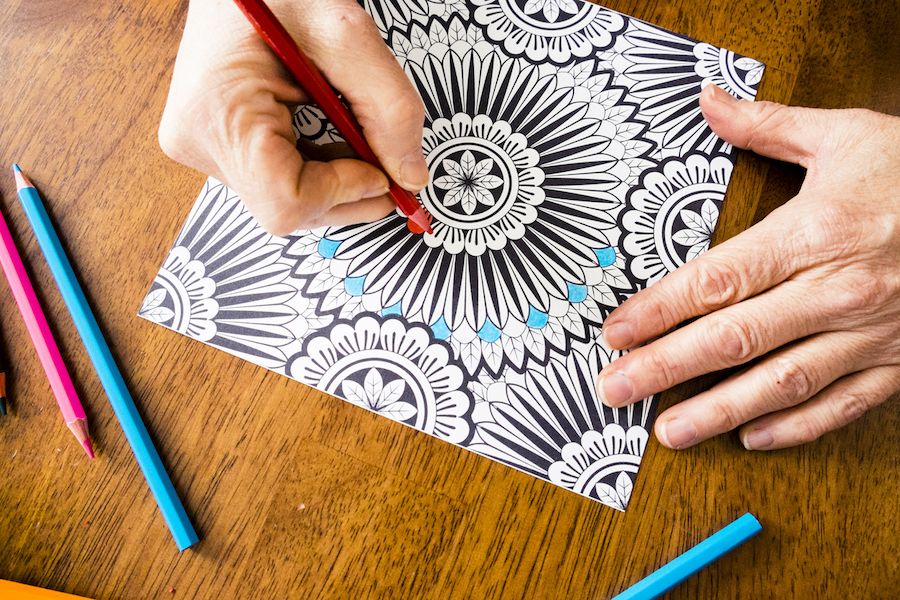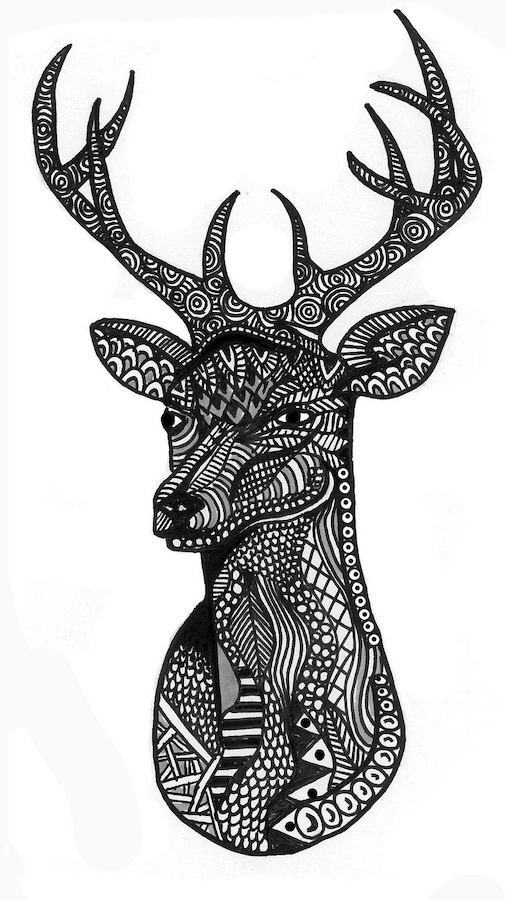
Psychologists have been concerned about the mental health effects on social distancing due to the coronavirus global pandemic. Previous research on the topic doesn’t paint an optimistic picture. People subjected to prolonged quarantines have a higher risk of dealing with problems like anxiety, insomnia and even substance abuse. Of these people, 34 per cent experience anxiety in depression, in comparison to only 12 per cent of non-quarantined individuals.
So, what are some of the best approaches to counter the mental toll of Covid-19 measures? Psychologists believe that numerous techniques can be utilised to reduce the risk for vulnerable individuals. Art therapy is one of these approaches.
Art Therapy to Fight Depressive Episodes
Throughout history, there have been groups of people and specific populations that have been living in relative isolation.
Psychologists have gotten to study these groups (for example – prisoners in high security prisons) to understand the impact of isolation on their mental wellbeing.
Art therapy is one of the mental health treatment options being offered to such individuals.
A form of psychotherapy, art therapy provides a creative outlet that a person can utilise to diminish mental anguish and express hidden thoughts, desires or fears. It’s an alternative to talking about an issue with a psychotherapist and many have seen excellent results from art therapy.
Among prison inmates, art therapy has proven itself as an effective anti-depression measure. According to research, art makes inmates feel more in control over their lives and this sense of agency brings down anxiety.
Additional work has been done among refugee children, cancer patients and other people undergoing medical treatment in isolation demonstrates positive effects of art therapy among tuberculosis patients being treated in total isolation.
Art therapy is usually guided by an experienced art therapy professional to provide the right kind of psychological outlet. This is even possible during the Covid-19 social distancing. Video streaming platforms make it possible for therapists to stay in touch with those at a risk of depression and to guide them through the steps of art therapy for optimal outcomes.
Benefiting from Art During the Circuit Breaker Period
Whether you’re feeling lonely, you’re looking for something enjoyable and relaxing to do or you’re experiencing some sort of mental anguish, art therapy could be an excellent choice during the circuit breaker period.
Even if you don’t have remote access to therapeutic opportunities, there are still ways to employ the power of art as a creative outlet.
Art as Therapy Exercises to Try at Home
Even though there is a difference between art therapy and using art as a therapy – making art can be a soothing and relaxing exercise during this difficult period as it brings you into the present moment.
For a start, you need to discover a medium that enjoy. Some people like to paint, some prefer sketching. Some like working with clay or sculpting. Creating jewellery and making collages or posters can also be included among the viable art therapy choices.
One very obvious and very simple form of using art as therapy is colouring.

Recently, we’ve seen a boom in the popularity of colouring books for adults. There’s a very simple reason why. Colouring allows you to zone out, calm down and take your mind off the things that trouble you at the moment. When you colour, you feel relaxed and your anxiety goes down. Doodling is a similar artistic activity that’s likely to produce a similar effect.
If colouring books don’t seem creative enough for you, try some of the art as therapy exercises mentioned below.
Here are a few very simple artistic activities you can employ therapeutically.
Start a Spontaneous Images Journal
All you need is a notebook, a pen or a pencil.
Open on the first page and draw whatever comes to mind. Do that a few times per day. Apart from drawing an image, give it a label or a brief caption. Focus on what you feel or what you’re trying to express. The more you work on your spontaneous images journal, the more you’ll start noticing patterns and trends.
Reflect on Gratitude
What are you grateful for? Think about the things that you like during this time. Things that you perhaps have time for. Draw them and put them up so you can focus on them.
Vision Board
Dreaming is free!
What would you do if you knew you could not fail?
How would you like to see yourself in 10 years? Draw or make a collage of your dream surroundings.
How would you like to see the world change?
Paint to Music
If you’re looking for a way to relax, put some of your favourite music on and start painting. The notes and melodies will take you places and get you more in touch with your emotions.
You can do this exercise with your eyes closed, as well. The aim here is to relax and reduce your stress levels.
Draw Freedom
Do you need a bit of happiness in your life right now? Sit down and draw something that’s representative of freedom. Obviously, you can create a sculpture or a collage with the same theme. The effect is going to be equally positive and up-lifting.
Try Zentangling

A zentangle is a drawing method originated by Rick Roberts and Maria Thomas. It’s a kind of meditative art project that’s very soothing and peaceful.
Start with a small square of paper and draw a freehand border with a pencil. Start with a curved line or a squiggle initiated at the border, starting a series of patterns or swirls. No erasers are used in zentangle drawing – mistakes often lead to beautiful creations.
If you’re not sure exactly what it is, you can watch videos and tutorials – dozens of such exist online. In its very essence, this is a form of focused doodling that clears your mind.
Finally, remember to have fun during this project. You can try art therapy on your own, with a significant other or your kids. What matters is discovering an activity that makes you feel relaxed and a bit more at ease with the current state of world affairs.
Social distancing is putting us to the test and this is especially true for people who may have mental health problems. If you’re feeling depressed, apathetic and incapable of functioning in your day-to-day life, do not hesitate to seek assistance. The Adelphi Psych Medicine Clinic team of mental health professionals including psychiatrists and psychotherapists are on standby to offer guidance – contact us right now!


